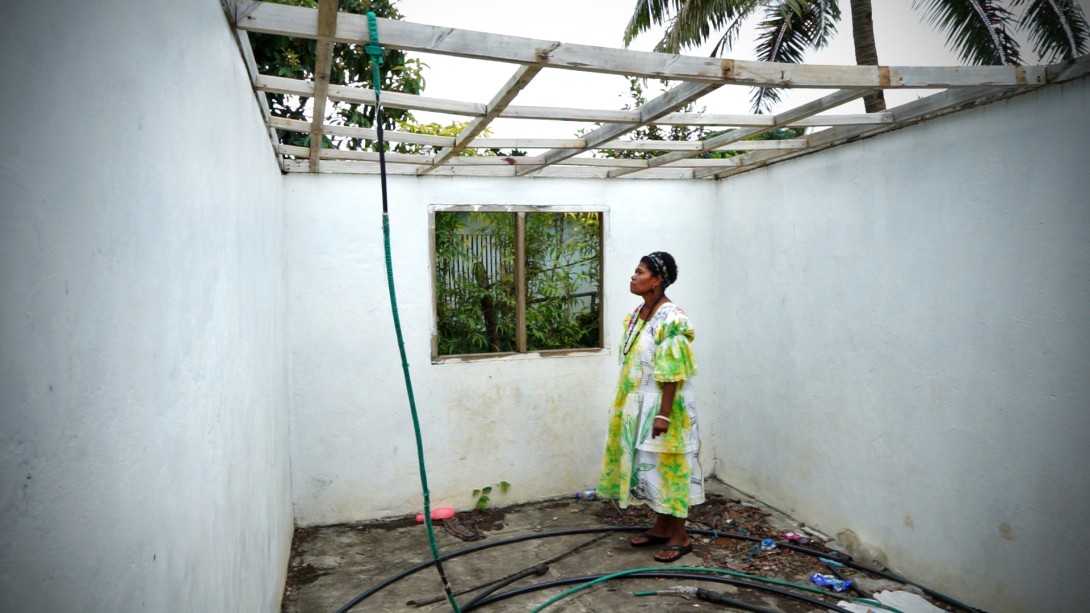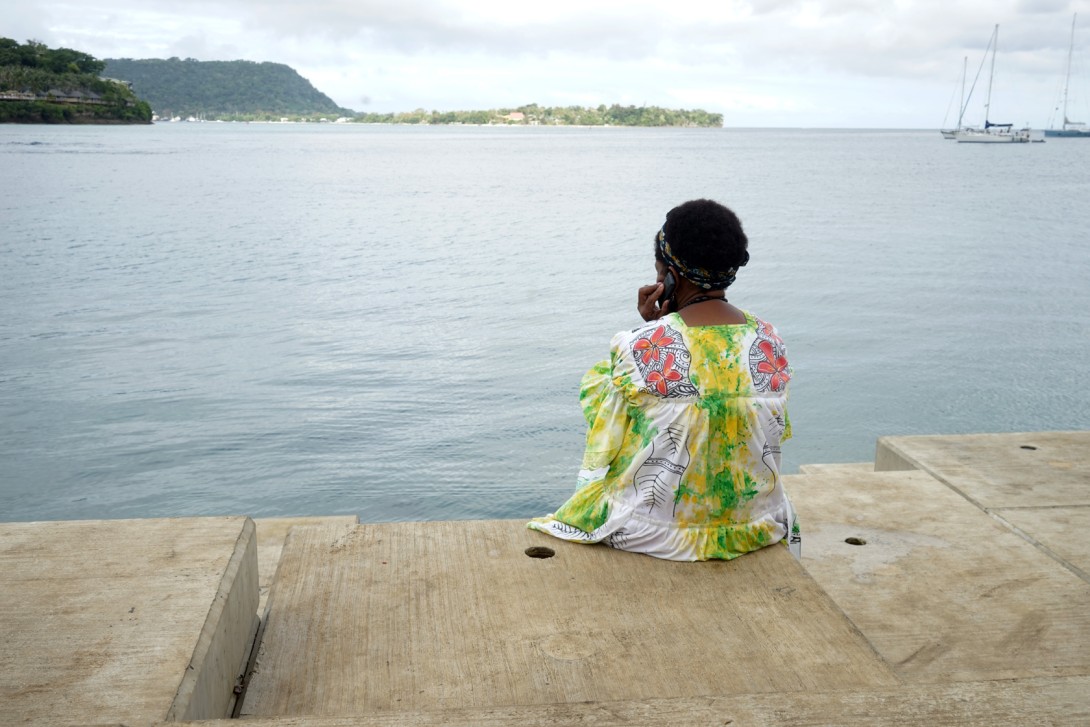Women entrepreneurs are helping to restore island nation’s economy after the ravages of Cyclone Pam
Originally published in International Trade Forum
The island nation of Vanuatu is surrounded by bright blue ocean, so it should come as no surprise that tourism makes a hefty contribution to the country’s economy. That model was disrupted in March 2015 when Cyclone Pam struck, devastating the country and its tourism-dependent income. Its recovery from that natural disaster has been assisted in no small part by the hands of women whose livelihoods depend on tourism dollars.
Rosalie Vatu is a so-called ‘market mama’, an arts and crafts trader who sells assorted items ranging from t-shirts and baskets to carvings and colourful dresses. Her day starts at 4 a.m. making coconut crème rolls for a shop down the road. She is also the founder of Bulvanua Arts and Handicrafts, a cooperative of more than 30 women who sell and promote products made in Vanuatu.

TOURISM ECONOMY
Over the last decade the country has become an increasingly popular tourist destination, with its number of international visitors growing by 42% and its tourism sector employing 55% of Vanuatu’s total labour force. Tourism represents nearly two-thirds of GDP.
However, increased tourism has been a mixed blessing for some entrepreneurs. Foreign-owned hotels have sprung up across the main island, luring tourists to spend the majority of their time and money in those spaces rather than in local markets.
According to Willie Luen, Principal Trade Development Officer at Vanuatu’s Department of Tourism, to be competitive, many of the traders began to rely on more cheaply priced imports, which then depressed Vanuatu’s own production.
"Profits were leaving the country as quickly as they arrived. The key to retaining the benefits of tourism was to be found in sourcing local products and presenting these to tourists, preferably outside the hotel environment," Luen said.
For Vatu and her fellow market mamas, the opportunity to boost their own businesses and that of people producing island-made items came with the redevelopment plans for Vanuatu’s storm-damaged seafront.
Cyclone Pam had damaged or destroyed 90% of the buildings on Vanuatu’s main island and that included the market infrastructure and ports.
"We had to relocate temporarily and during that time it was really sad for us because we lost our businesses," Vatu said.
That meant the government’s post-cyclone reconstruction plans were critical to restoring the local economy and the futures of Vanuatu’s entrepreneurs.
"We were convinced that the new seafront could provide an opportunity to better showcase local goods to tourists and provide much-needed stimulus to the local economy," Luen said.

SEAFRONT DEVELOPMENT
With the help of the New Zealand government in partnership with the Enhanced Integrated Framework, in September 2017 Vanuatu completed and launched its new seafront development, now an enticing and attractive area for locals and visitors alike.
The mamas’ handicrafts market was rebuilt with added power and internet access and the women are back in the centre of town selling creative artisanal work, brightly coloured dresses and woven bags and baskets from the outer islands.
In the process, they are generating stronger linkages between tourists and Vanuatu-made products and services.
As tourist arrivals increase by a projected 36% and the mamas pivot towards local producers, a supply chain is developing that links the country’s many artisans to eager buyers at the new seafront, with the promise of improving the lives of people way beyond seaside kiosks.
The impact on the lives of ordinary people has been marked, Luen said. He speaks of a highly visible change at least partly owing to the increased income from tourism: new and better houses, schools filling with children and markets, specifically the thriving Port Villa Seafront.
"I see the opportunities that men and women of Vanuatu can do out of the local resources around them. With busy hands, they can create something to help Vanuatu to build its economy."
Rosalie Vatu
"One of the carvers recently told me that because people see his works on the seafront and are contacting him for orders, he now has enough income to send his daughter to school," Luen said.
In her efforts to better connect local producers with traders, Vatu, who started selling goods to visitors in 2003, is already seeing change.
"[Tourists] are no longer going back to the shops where all the imported products are," she said. "I see the opportunities that men and women of Vanuatu can do out of the local resources around them. With busy hands, they can create something to help Vanuatu to build its economy."

There is a lot more on the horizon for Vatu with her business acumen, as well as the others playing a role in boosting local livelihoods and, with that, Vanuatu’s economic recovery.
"Where the new beautification is at the moment I always love to sit there looking over the horizon," Rosalie said. "It means a lot to us. It’s a beautiful site."
Related:
If you would like to reuse any material published here, please let us know by sending an email to EIF Communications: eifcommunications@wto.org.


